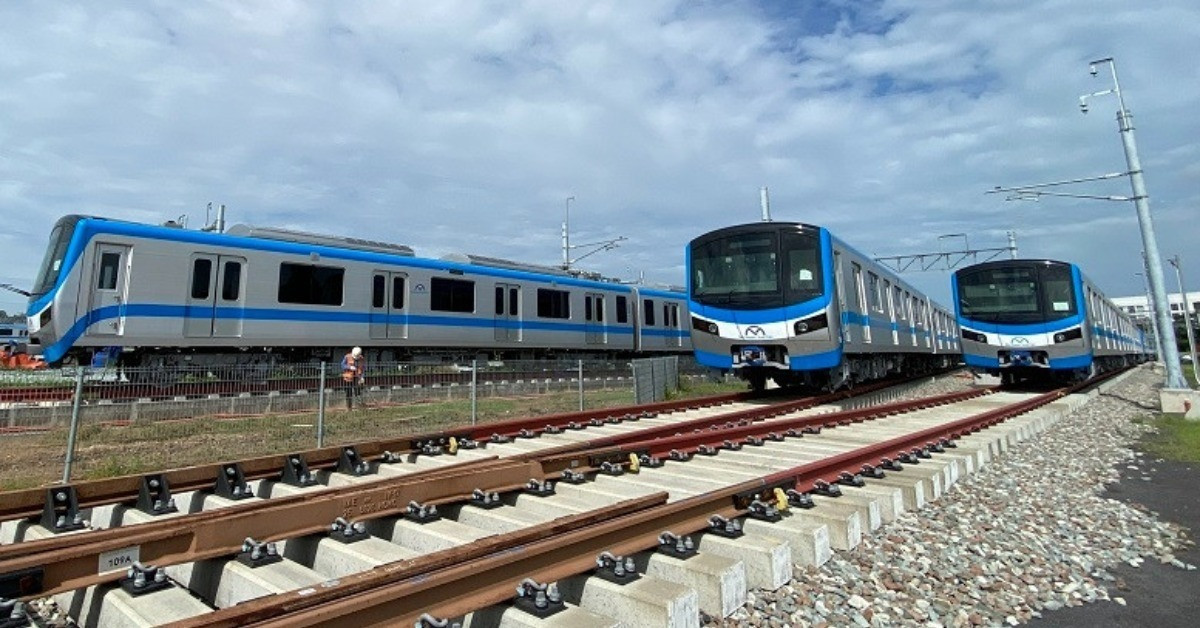
The HCM City Urban Railway Management Board (MAUR) recently released a report outlining the outcomes and ongoing challenges related to Metro Line 1 (Ben Thanh - Suoi Tien).
Despite the completion of more than 98.24% of Metro Line 1, MAUR highlighted persistent issues and obstacles that may result in further delays, notably within the CP3 package, managed by Hitachi. Although efforts have been made to coordinate between stakeholders, including the NJPT consultant and the Hitachi contractor, challenges persist, particularly regarding the development of a comprehensive training plan.
Moreover, Hitachi has revised its progress milestones, with the Trial-Run phase now slated for November, rather than October, further extending the project timeline.
In response, MAUR has urged the Embassy of Japan in Vietnam to intervene, encouraging Hitachi to adhere to project deadlines and collaborate closely with the investor to devise interim solutions that uphold the interests and obligations of both parties.
Additionally, MAUR emphasized the need to enhance the role and capabilities of the NJPT general consultant, citing shortcomings in addressing technical, contractual, and trade-related issues.
Establishment of Dispute Resolution Board (DAB) to handle Hitachi’s complaints
Metro Line 1 is entering its crucial phase, but it is encountering a series of complications related to contract interpretation and coordination between the NJPT (general consultant) and Japanese contractors, leading to delays in some tasks.
The biggest hurdle lies within the CP3 package managed by Hitachi contractor. Recently, the Japanese contractor unilaterally requested the investor to compensate for costs incurred due to the extension of the completion period, totaling approximately 23.721 billion Yen.
To expedite training activities (and consequently, project progress), in line with the opinion of the Chairman of Ho Chi Minh City People's Committee, and in agreement with the Japanese Ambassador, it is necessary for the parties to promptly establish a Dispute Resolution Board (DAB). Subsequently, Hitachi contractor will implement measures to accelerate project progress.
Following review, MAUR has noted that establishing the DAB requires a certain period of time. Therefore, MAUR proposes a solution to issue a temporary change order (based on the contractor's proposed value for 70% payment) to enable the contractor to immediately carry out work content to expedite the project. The remaining amount and final value will depend on the decision of the DAB or Commercial Arbitration (if the contractor is incorrect, the cost of this change order will be refunded).
Hitachi contractor has expressed agreement in principle, but requires 100% temporary payment of the proposed value before carrying out the work.
According to MAUR, paying 100% of the proposed value to the contractor while the contents are still considered as "disputed" or "different understandings" is inappropriate. Paying 70% is in accordance with contract provisions, and ensures the rights of both the contractor and the investor for post-project inspection and audit. Therefore, MAUR recommends that the Japanese Embassy encourage Hitachi to approve the proposal to expedite work.
In addition to the above content, MAUR stated that the costs for maintenance and repair of Metro Line 1 project have not yet been agreed upon by the related parties.
Tuan Kiet